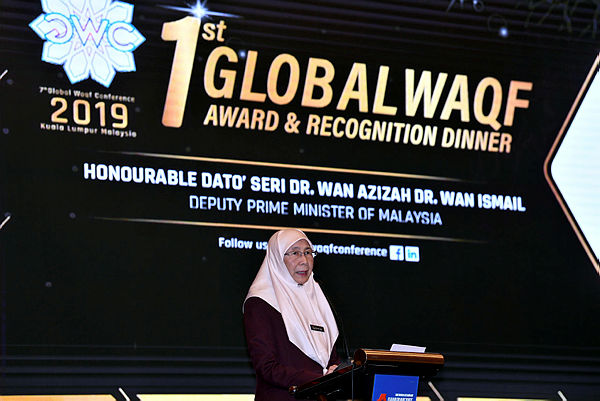KUALA LUMPUR: Waqf (Islamic endowment) managers have been urged to be more creative in exploring the economic potential of waqf properties.
In making the call, Deputy Prime Minister Datuk Seri Dr Wan Azizah Wan Ismail said it was reported that there was an abundance of waqf land around the globe that has not been developed.
“According to Yayasan Waqf Malaysia, only 12% from the total of almost 31,000ha of waqf land have been developed, mainly for traditional religious purposes such as (to build) mosques, Muslim cemeteries, and Islamic schools.
“However, very little of such waqf assets have been developed for more inclusive socio-economic purposes, such as business centres and transport hubs, which can generate revenue to support the economic development of the ummah,” she said in her keynote address at the 1st Global Waqf Conference (GWC) 2019 Award & Recognition Ceremony, yesterday.
Wan Azizah said that there was an urgent need for a more effective regulatory framework, greater professionalism and strong governance within the Malaysian waqf administration in order to gain public trust and to provide maximum benefits to the ummah.
The general perception that there is poor management of waqf institutions and waqf properties around the world including in Malaysia still exists, she added.
Wan Azizah said the issues had been magnified by the lack of effective legal frameworks on waqf administration as well as poor governance and lack of transparency.
Therefore in the context of Malaysia, she said the government had shown its seriousness to support the development of waqf especially in terms of developing an effective legal framework to manage waqf affairs.
“Currently, only five states have drafted a specific enactment on waqf through their respective state assemblies namely Malacca, Negri Sembilan, Selangor, Perak, and Terengganu.
“In the meantime, the federal government is in the process of drafting a waqf act to regulate waqf management in the federal territories,” she said. — Bernama










